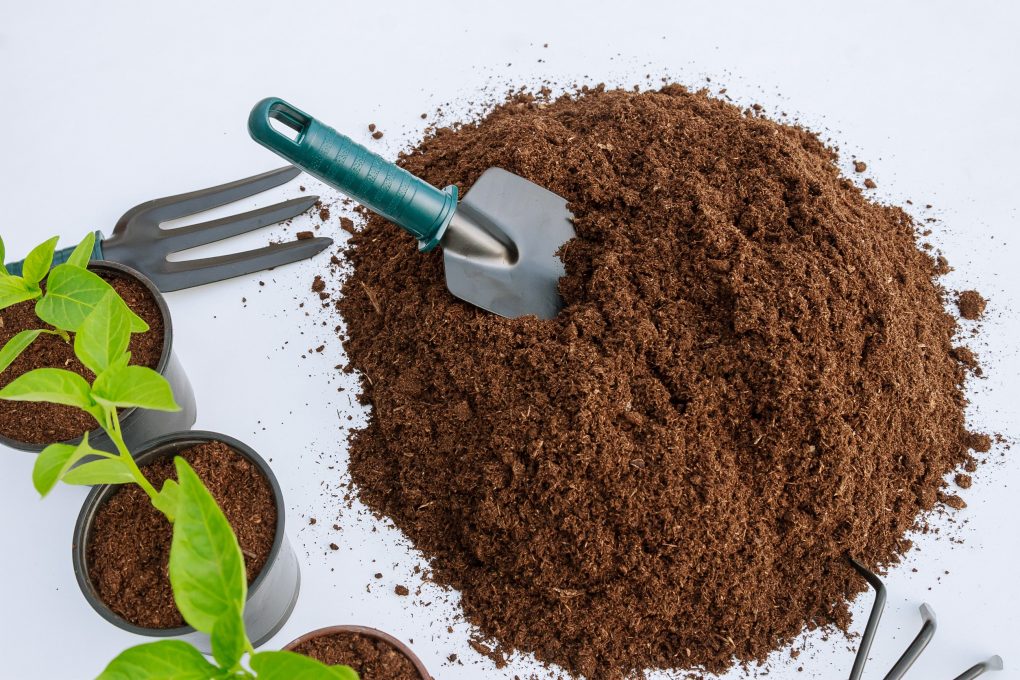Are Sunflowers Good for Soil Health: Benefits and Risks of Sunflowers for Soil Health
Yes, sunflowers can be good for soil health in several ways. They have deep roots that help break up compacted soil, improve soil structure, and increase soil organic matter. Sunflowers can also act as a biofumigant, releasing natural compounds that can help control soil-borne pests and diseases.

Sunflowers are also known for their ability to phytoremediation contaminated soils. They can extract heavy metals and other pollutants from the soil, which can help to remediate contaminated sites. Sunflowers are particularly effective at removing lead from soil and have been used to remediate sites contaminated with lead from sources such as mining or industrial activities.
Table of Contents
Benefits of Sunflowers for Soil Health
Phytoremediation
According to the United States Environmental Protection Agency, phytoremediation is a process in which plants remove pollutants from the soil, water, or air. It is a sustainable and environmentally friendly method of remediation that can be used to clean up contaminated sites.
During phytoremediation, plants can absorb pollutants through their roots, store them in their tissues, or break them down into less harmful substances through various metabolic processes. Some pollutants that can be removed through phytoremediation include heavy metals, organic compounds, and radioactive isotopes.
Phytoremediation has several advantages over traditional remediation methods, such as excavation and chemical treatment. It is usually cheaper and less disruptive to the environment and can be used to treat a wide range of contaminants. Additionally, phytoremediation can restore ecosystems by promoting plant growth and biodiversity.
Soil Structure

Soil structure refers to how individual soil particles are arranged and clumped together to form larger aggregates. Soil structure is crucial for plant growth because it affects the movement of water, air, and nutrients in the soil, as well as the ability of roots to penetrate and grow through the soil.
Good soil structure is characterized by the presence of stable aggregates that are resistant to erosion and compaction. This allows for better water infiltration and drainage, increased soil aeration, and improved root growth. Soil structure can be improved through various management practices, such as reducing tillage, adding organic matter, and avoiding soil compaction.
Poor soil structure, on the other hand, can lead to reduced plant growth and increased soil erosion. Soil compaction, for example, can reduce soil pore space and limit the movement of air, water, and nutrients in the soil. This can reduce plant growth and increase susceptibility to pests and diseases. Various factors, including heavy equipment use, excessive tillage, and overgrazing, can degrade soil structure.
Organic Matter
Organic matter is the term used to describe any material derived from living organisms or their by-products and present in the soil. Organic matter is a vital component of healthy soil and is important in soil fertility and overall soil health.
Organic matter comprises a complex mixture of materials, including plant and animal residues, humus, and decomposing organisms. It provides several benefits to the soil, such as improving soil structure, water retention, and nutrient cycling. Organic matter can also help to reduce soil erosion and enhance soil biological activity.
One of the primary benefits of organic matter is its ability to improve soil structure. Organic matter can bind soil particles together to form aggregates, which helps to improve soil porosity, aeration, and water infiltration. It can also provide a source of nutrients for soil organisms and plants and help retain nutrients in the soil.
Nitrogen Fixation
The process of nitrogen fixation involves the conversion of atmospheric nitrogen (N2) into usable forms like ammonia (NH3) or nitrate (NO3-) that plants require. Nitrogen is a crucial element for plant growth, but even though it is abundant in the air, it can be a limiting factor for plant growth in some ecosystems.
Nitrogen fixation can occur through both biological and non-biological processes. In biological nitrogen fixation, certain bacteria can convert atmospheric nitrogen into ammonia, which plants can use. These bacteria form symbiotic relationships with plants, such as legumes, or can be free-living in the soil.
Biological nitrogen fixation is an important process for sustainable agriculture, as it can reduce the need for synthetic fertilizers, which can be expensive and have negative environmental impacts.
Legume crops, such as soybeans, peas, and lentils, can form symbiotic relationships with nitrogen-fixing bacteria, which allows them to grow without added nitrogen fertilizers. Crop rotations that include legumes can also help to increase soil nitrogen levels and improve soil health.
Risks of Sunflowers for Soil Health

Sunflowers can have positive and negative impacts on soil health, depending on how they are grown and managed. For example, while sunflowers are known for their ability to remove contaminants from soil and promote soil health, there are some risks associated with their cultivation.
One risk of sunflower cultivation is the potential for soil erosion. Sunflowers have shallow roots and can create bare soil conditions, which can increase the risk of soil erosion. This can be mitigated through proper management practices, such as planting cover crops or reducing tillage.
Another risk is the potential for nutrient depletion. Sunflowers are heavy users of nutrients, particularly nitrogen and phosphorus, which can deplete soil fertility if not managed properly. This can be addressed through the use of proper nutrient management practices, such as using fertilizers or incorporating organic matter into the soil.
Sunflowers can also be hosts for pests and diseases that can negatively impact soil health. This can be mitigated through proper pest and disease management practices, such as crop rotation and integrated pest management.
Tips When Using Sunflowers for Soil Health

Planting Sunflowers for Soil Health
Sunflowers are a great option for improving soil health due to their deep taproots that can break up compacted soil and improve drainage. To plant sunflowers for soil health, choose a sunny location with well-draining soil.
Sunflowers prefer slightly acidic soil with a pH between 6.0 and 7.5. For better soil quality and fertility before planting, it’s recommended to incorporate compost or other organic matter into the soil. Sunflower seeds should be planted in the spring season once the risk of frost has subsided. Ensure you sow the seeds 1 to 2 inches deep and space them 6 to 12 inches apart. After planting, water the seeds immediately and keep the soil consistently moist until the seeds begin to germinate.
Using Sunflowers for Crop Rotation and Cover Crops
Based on observation, sunflowers can also be used as a cover crop or in crop rotation to improve soil health. Sunflowers can help control weeds, reduce erosion, and add organic matter to the soil when used as a cover crop.
Sunflowers can help break up compacted soil and improve soil structure when used in crop rotation. Sunflowers are also known to attract beneficial insects, such as bees and butterflies, which can help pollinate other crops in the rotation.
Harvesting Sunflowers for Soil Health
When harvesting sunflowers for soil health, it is important to leave the roots in the ground. The roots will continue to break down and add organic matter to the soil.
The sunflower heads can be harvested for their seeds, a nutritious snack for humans and animals alike. The leftover plant material can be chopped on the soil surface as a mulch to improve soil health.
